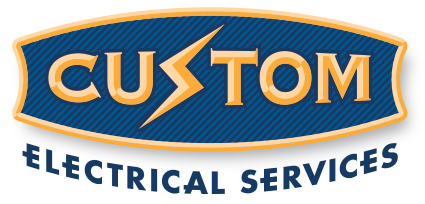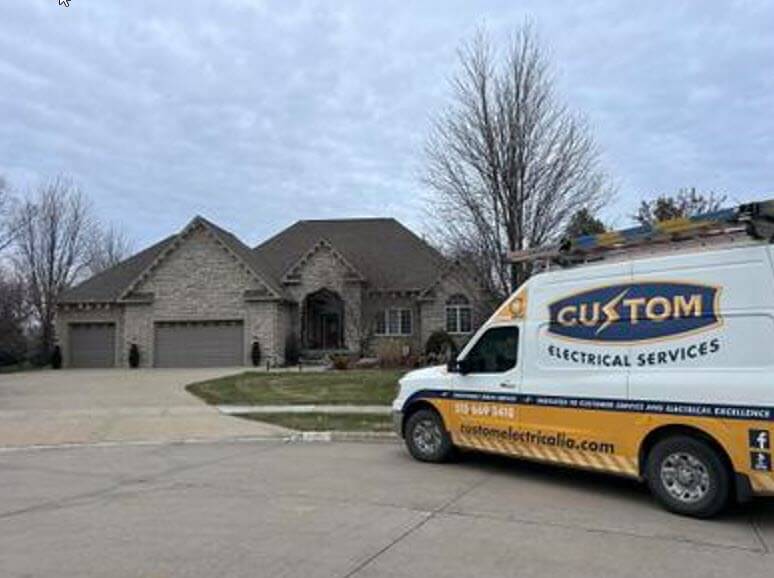Arc Fault Circuit Interrupters
Arc fault circuit interrupters detect and block arc faults occurring when electricity jumps from one conductor to another. This type of electrical fault is the common cause of about half of the electrical fires across the country, according to the NFPA. Installing Arc fault circuit interrupters also helps protect your home devices by preventing wiring from overheating and melting. With overwhelming evidence proving the value of AFCIs, the National Electrical Code now requires their installation in all new builds. For your older property, an AFCI is one of the best-value safety upgrades in 2024.
Hardwired Smoke Alarm
Your battery-powered smoke alarm generally provides sufficient protection during a home fire. However, reliance on battery power for smoke alarms creates an elevated level of risk. For example, you may miss the chirp alerting you to low battery levels. In addition, battery-powered smoke alarms will only detect a fire within that specific home location. This lag time risks a fire breaking out before you can react.
Hardwiring a smoke alarm ensures that when one detector detects smoke, the system alarm sends a signal to all interconnected detectors throughout the property. In addition, because the alarm is hardwired and draws power from a household circuit, the system offers superior reliability compared with battery-powered smoke detectors. Hardwired systems only rely on batteries as a backup in case of power failure.
Electrical Panel Upgrades
Your electrical panel is your home’s operational control center. When your home appliances and devices draw too much power, the system fails and causes power outages. In addition to supporting the power demand throughout your home, an upgraded electrical panel can help reduce the risk of electrical fires by preventing circuit overloads and reducing the potential for overheating.
New Outlets
Another common cause of electrical fires is the reliance on extension cords, which may include too many appliances plugged into one cord. Or a cord being used unsafely and outside of its intended application. For example, fire risks occur when an extension cord only rated for indoor use is in use outside and when cords run under rugs and other household items.
Installing new outlets throughout the home can prevent the overuse of extension cords. The latest electrical outlets also include USB connections, helping free up outlet space for other equipment as you charge your cell phone or tablet.
Surge Protectors
While electrical fire protection is a critical consideration when creating a home safety plan for 2024, data safety and device protection are also paramount. Whole house surge protectors cover these vital areas of home electrical safety. Surge protectors protect against sudden rises in voltage caused by lightning, short circuits, and power company malfunctions. These systems detect high voltage surges and immediately block the path to internal circuits so the excess power cannot damage your home appliances and electrical equipment and to minimize the risk of dangerous wire overheating.
Make Custom Electrical Your Iowa Electrical Safety Partner
Custom Electrical Services combines decades of electrical services experience with access to the newest electrical safety technology to tailor safety upgrades specifically to your home. We offer 24/7 access to licensed and experienced electricians for your home safety upgrades. Begin your upcoming home upgrade project today by calling our team at 515-669-3418 or booking online to discuss your service options.



